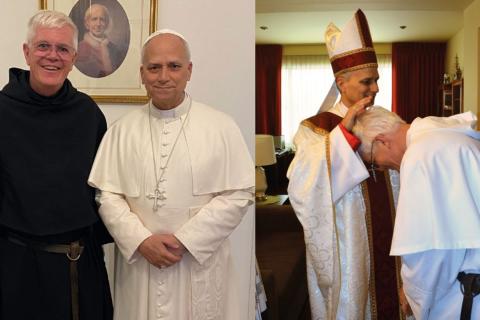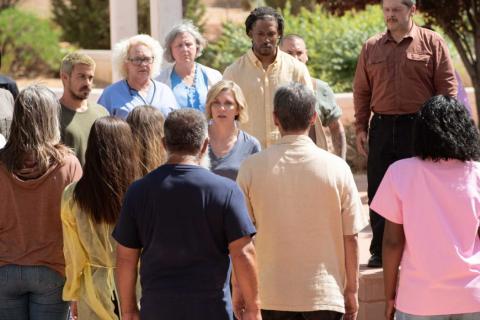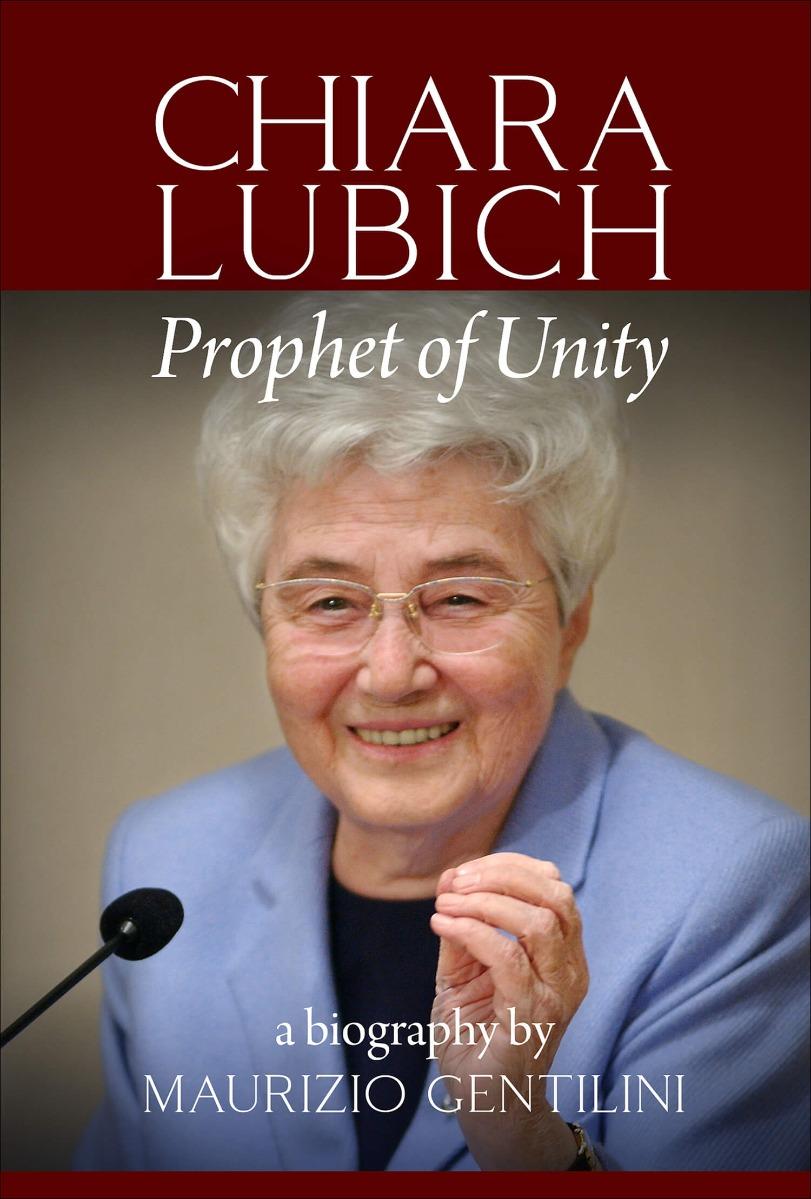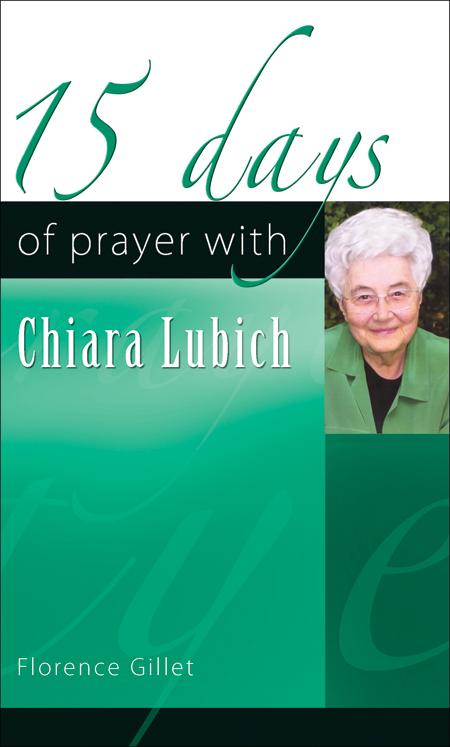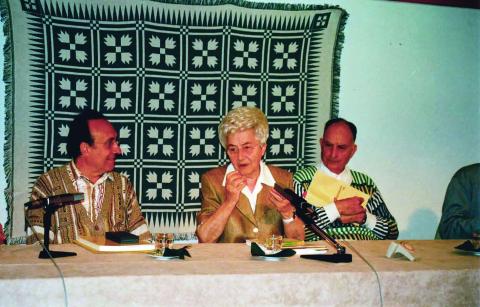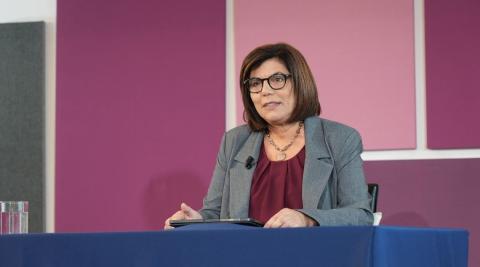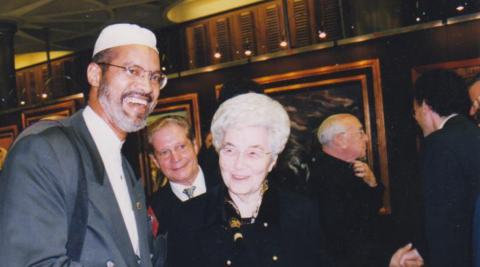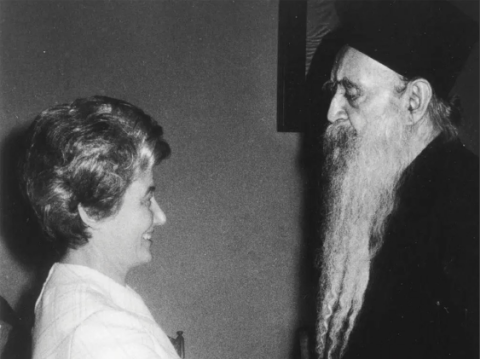Chiara Lubich was founder and first president of the Focolare Movement, and a prolific writer. We continue to celebrate the centennial of her birth (1920) by covering key moments in her life. Part 21 (and last): 2008 That look in Chiara’s eyes
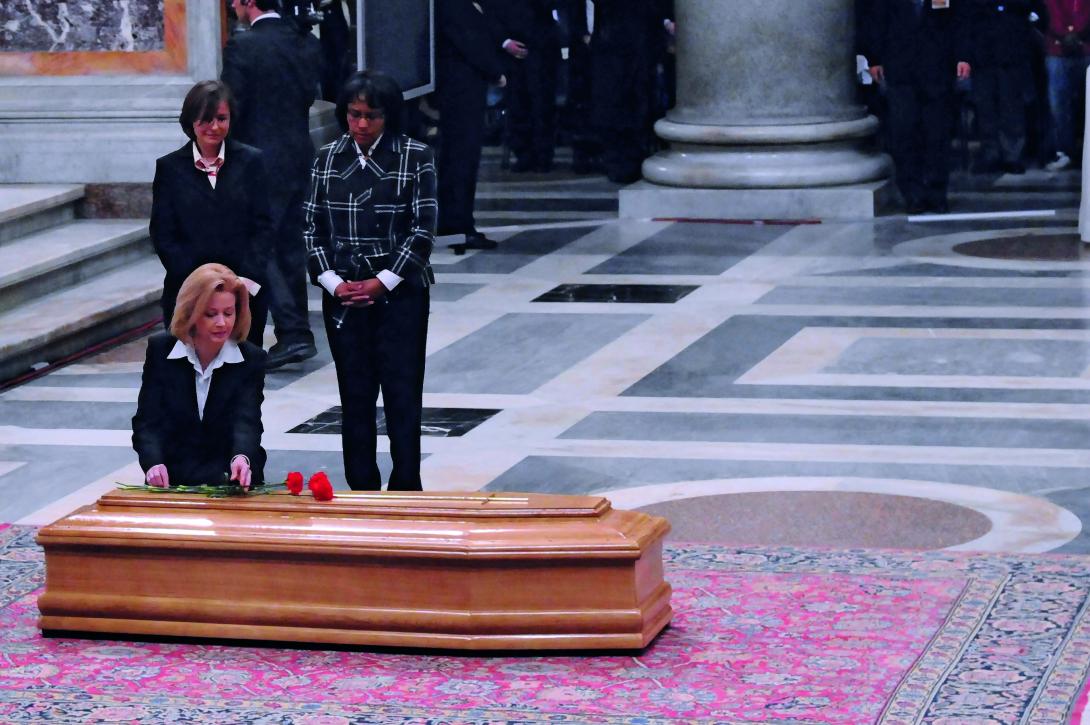
Photo courtesy of Città Nuova
Chiara Lubich spent the last weeks of her life, at the beginning of 2008, between the hospital and her home.
“Illness was often present in Chiara’s life,” remembers Dr. Flavia Caretta. “This helps explain her ability to understand in a profound way what others were going through. In the last years of her life, she was often sick and was admitted several times to the Agostino Gemelli Hospital in Rome where I work.
“The treatments she had to undergo were very demanding, and she saw them as a constant reminder of the need to recognize the will of God in all things. Her physiotherapy sessions were an example of this. She did the exercises faithfully, even though they were often exhausting.
“I saw how Chiara lived each present moment with solemnity. Whether the person entering her room was a doctor or a nurse or one of the cleaning personnel, she gave them her full attention.
“One day I entered her room. The anesthetist had just withdrawn the medication they were giving her for her serious respiratory insufficiency. I thought she was asleep. I took her chart and started to look at the results of her latest exams when I heard her say my name.
“I turned around and met her glance. I thought I heard her say the word ‘fear.’ I wondered if she was referring to the fear for her health. She repeated the question, and I realized she was talking about something else, that is, if I myself had ever experienced fear. I answered that yes, I had experienced fear or apprehension in different circumstances, but that she herself had given me the key for approaching these situations.
“‘Chiara, you taught us that Jesus in his abandonment took upon himself all our fear, and that in his love we could find the strength to overcome it.’
“Chiara remained silent, but I sensed our exchange was not over, so I asked her: ‘Chiara, are you afraid?’ Obviously she had been waiting for that very question and replied, ‘Extremely,’ repeating the word, drawing on all the strength she had.
“I told her, ‘Chiara, we want to take this fear upon ourselves and face it together with Jesus in our midst. Your part is to continue your treatments and not worry about anything else.’
“She looked me in the eye and pronounced a solemn ‘yes,’ nodding her head. I saw that she was relieved and ready to rest. She had just revealed the greatness of her person in letting one of her spiritual children, who has everything to learn from her, repeat to her one of the deepest intuitions of her spirituality.
“Chiara spent the last 24 hours of her life in her own bedroom at home. Her personal witness had turned it into a sacred space that emanated peace and serenity. I saw it as a culminating moment, expressing our collective spirituality.
“To her last breath, in fact, she gave all of herself to each one of the hundreds of people who passed through her room to greet her, stopping a moment beside her bed and receiving in turn inner strength that I think will remain in the depths of each person’s soul.”
Chiara’s last evening on earth was special indeed. Alba Sgariglia, who worked closely with her for many years, confirmed: “In a matter of minutes the news that Chiara had returned home, and was close to the end, spread like wildfire. We, her spiritual children, came together there, each one with his or her own personal memories of experiences lived with Chiara. We were all motivated by the need to thank her in some way for the gift her life was for us.
“As people passed near her bed, each one felt that even in that final moment of her life, she was there totally for them. Each one spoke a word or two, and she acknowledged it as best she could, nodding her head, or with a gesture as if to say, ‘I am here, as always,’ all the way to the end, to the very last moment of her life.
“And there were many of us. It was a powerful and moving experience, an unforgettable one that left an indelible mark.”
Chiara Lubich left for heaven at 2am on March 14, 2008, at age 88. Her funeral mass took place in Rome at the Basilica of Saint Paul Outside the Walls on March 18. Thousands attended, including many civil and religious leaders and dignitaries who wanted to describe what Chiara meant to them and to the world.
Her remains were entombed in the chapel at the movement’s headquarters in Rocca di Papa, Italy alongside the Work of Mary’s two cofounders, Igino Giordani and Pasquale Foresi.
Sickness and death
If we look at illness just from a human point of view, then we necessarily conclude that it is distasteful. But if we look at it from a Christian perspective, we can see it as a test, and these tests help us to prepare for the final test that awaits each one of us at the moment of our departure for the afterlife.
Chiara Lubich, “Every life calls for love,” from her address at the convention of the Movement for Life, Florence, Italy, May 17, 1986.
Sometimes I have been asked if I am afraid to die. Well, I might have been, but now, thanks be to God, I am not. If during your life you tried to do something for him, then I think that close to the end he will come to us with all his benevolence…
What I am afraid of is the suffering that might precede my death, the terror of such acute pain, as I have witnessed in many people, such unbearable pain that you can’t keep from crying and complaining…
But in this too I find consolation in the Christ whom I have followed: Jesus crucified and forsaken, who cried out “My God…” He will put up with my cries and laments. In certain moments of life, he doesn’t expect to see us smiling.
Chiara Lubich, “Death is a taboo,” from her interview with British journalist Margaret Coen in Marino, Italy, December 1990.




